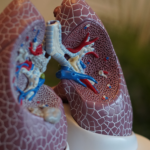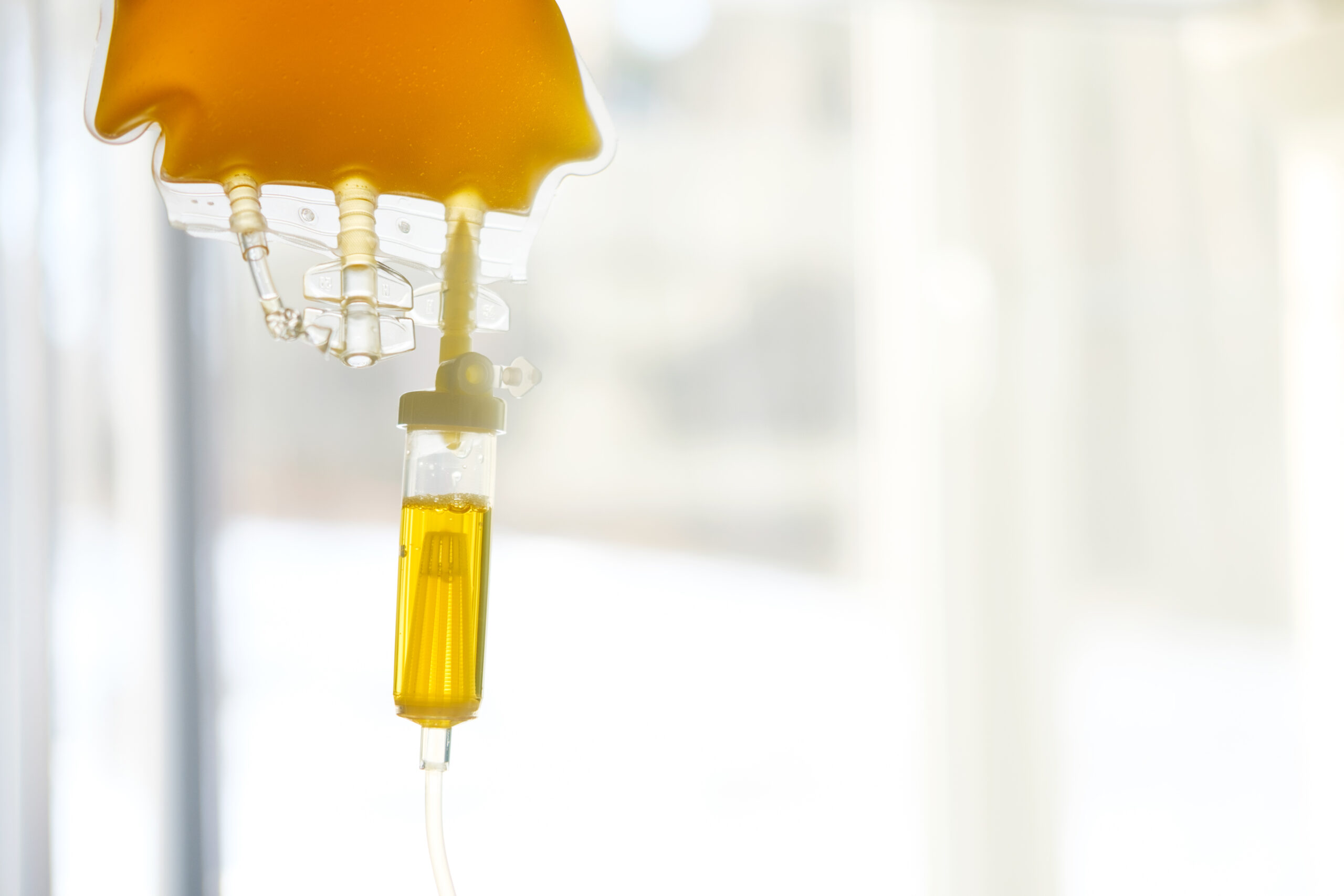
Should and How Should We Anticoagulate COVID-19 Patients Admitted to the Intensive Care Unit? A Brief Highlight of Select Papers
In this blog we explore we should be screening and treating the hypercoagulable state that COVID-19 patients present with to the intensive care unit. In exploring these questions, we discuss three papers below.
The first paper: Prevalence of Thrombotic Complications in ICU-Treated Patients With Coronavirus Disease 2019 Detected With Systematic CT Scanning. The authors found that there was a high prevalence of thrombotic complications, mainly pulmonary, among coronavirus disease 2019 patients admitted to ICU, despite anticoagulation. Detection of thrombus was usually incidental, not predicted by coagulation or inflammatory biomarkers, and associated with increased risk of death. Because of this their recommendation was that systematic CT imaging at admission should be considered in all coronavirus disease 2019 patients requiring ICU.
Now, let’s take a look at a recent New England Journal of Medicine study Therapeutic Anticoagulation with Heparin in Critically Ill Patients with Covid-19. In it, the authors found that in critically ill patients with COVID-19, an initial strategy of therapeutic-dose anticoagulation with heparin did not result in a greater probability of survival to hospital discharge or a greater number of days free of cardiovascular or respiratory organ support than did usual-care pharmacologic thromboprophylaxis.
Noted here that the NEJM patient population where not screened with CT imaging on admission, which leads to the likely conclusion that perhaps CT imaging should be used as a screening modality to determine candidacy for full dose anticoagulation in this patient population given the findings that biomarkers of coagulation (e.g., d-dimer, fibrinogen level, and activated partial thromboplastin time) or inflammation (WBC count, C-reactive protein) do not appear to discriminate between patients with or without thrombotic complications.
Lastly, as we have seen since the beginning of COVID-19, this disease entity appears to represent a new type of hypercoagulable state than what we have seen prior. Initial coagulopathy in COVID-19 patients present with elevated fibrin degradation products, especially D-dimers. In contrast, late presentations show evidence of prolonged prothrombin time (PT) and activated partial thromboplastin (aPTT), increased platelets, and fibrinogen levels.
To this end, we highlight the paper Aspirin Use Is Associated With Decreased Mechanical Ventilation, Intensive Care Unit Admission, and In-Hospital Mortality in Hospitalized Patients With Coronavirus Disease 2019. With this paper we want to at least bring to the awareness of our readers that, though this was an observational study only, the authors found that after adjusting for 8 confounding variables, aspirin use was independently associated with decreased risk of mechanical ventilation (adjusted HR, 0.56, 95% confidence interval [CI], 0.37-0.85, P = .007), ICU admission (adjusted HR, 0.57, 95% CI, 0.38-0.85, P = .005), and in-hospital mortality (adjusted HR, 0.53, 95% CI, 0.31-0.90, P = .02). There were no differences in major bleeding (P = .69) or overt thrombosis (P = .82) between aspirin users and non-aspirin users. Given these findings, in most patients the benefits of treating with aspirin will likely outweigh any associated risks and should likely be considered on all COVID-19 patients admitted to the intensive unit.
Summary Points to Consider
1. Covid-19 patients are at risk for a very complex coagulopathy causing venous AND arterial thrombosis
2. D-Dimer and other markers do NOT CORRELATE well with risk of coagulation but DO correlate with COVID-19 mortality
3. Routine full anticoagulation in all covid patients with HIGH D-Dimer levels do not reduce mortality
4. Screening COVID-19 patients for thrombi maybe useful is certain patients
- Mirsadraee S, Gorog DA, Mahon CF, Rawal B, Semple TR, Nicol ED, Arachchillage DRJ, Devaraj A, Price S, Desai SR, Ridge CA, Singh S, Padley SPG. Prevalence of Thrombotic Complications in ICU-Treated Patients With Coronavirus Disease 2019 Detected With Systematic CT Scanning. Crit Care Med. 2021 May 1;49(5):804-815. doi: 10.1097/CCM.0000000000004890. PMID: 33470780.
- REMAP-CAP Investigators; ACTIV-4a Investigators; ATTACC Investigators, Goligher EC, Bradbury CA, McVerry BJ, Lawler PR, Berger JS, Gong MN, Carrier M, Reynolds HR, Kumar A, Turgeon AF, Kornblith LZ, Kahn SR, Marshall JC, Kim KS, Houston BL, Derde LPG, Cushman M, Tritschler T, Angus DC, Godoy LC, McQuilten Z, Kirwan BA, Farkouh ME, Brooks MM, Lewis RJ, Berry LR, Lorenzi E, Gordon AC, Ahuja T, Al-Beidh F, Annane D, Arabi YM, Aryal D, Baumann Kreuziger L, Beane A, Bhimani Z, Bihari S, Billett HH, Bond L, Bonten M, Brunkhorst F, Buxton M, Buzgau A, Castellucci LA, Chekuri S, Chen JT, Cheng AC, Chkhikvadze T, Coiffard B, Contreras A, Costantini TW, de Brouwer S, Detry MA, Duggal A, Džavík V, Effron MB, Eng HF, Escobedo J, Estcourt LJ, Everett BM, Fergusson DA, Fitzgerald M, Fowler RA, Froess JD, Fu Z, Galanaud JP, Galen BT, Gandotra S, Girard TD, Goodman AL, Goossens H, Green C, Greenstein YY, Gross PL, Haniffa R, Hegde SM, Hendrickson CM, Higgins AM, Hindenburg AA, Hope AA, Horowitz JM, Horvat CM, Huang DT, Hudock K, Hunt BJ, Husain M, Hyzy RC, Jacobson JR, Jayakumar D, Keller NM, Khan A, Kim Y, Kindzelski A, King AJ, Knudson MM, Kornblith AE, Kutcher ME, Laffan MA, Lamontagne F, Le Gal G, Leeper CM, Leifer ES, Lim G, Gallego Lima F, Linstrum K, Litton E, Lopez-Sendon J, Lother SA, Marten N, Saud Marinez A, Martinez M, Mateos Garcia E, Mavromichalis S, McAuley DF, McDonald EG, McGlothlin A, McGuinness SP, Middeldorp S, Montgomery SK, Mouncey PR, Murthy S, Nair GB, Nair R, Nichol AD, Nicolau JC, Nunez-Garcia B, Park JJ, Park PK, Parke RL, Parker JC, Parnia S, Paul JD, Pompilio M, Quigley JG, Rosenson RS, Rost NS, Rowan K, Santos FO, Santos M, Santos MO, Satterwhite L, Saunders CT, Schreiber J, Schutgens REG, Seymour CW, Siegal DM, Silva DG Jr, Singhal AB, Slutsky AS, Solvason D, Stanworth SJ, Turner AM, van Bentum-Puijk W, van de Veerdonk FL, van Diepen S, Vazquez-Grande G, Wahid L, Wareham V, Widmer RJ, Wilson JG, Yuriditsky E, Zhong Y, Berry SM, McArthur CJ, Neal MD, Hochman JS, Webb SA, Zarychanski R. Therapeutic Anticoagulation with Heparin in Critically Ill Patients with Covid-19. N Engl J Med. 2021 Aug 26;385(9):777-789. doi: 10.1056/NEJMoa2103417. Epub 2021 Aug 4. PMID: 34351722; PMCID: PMC8362592.
- Chow JH, Khanna AK, Kethireddy S, Yamane D, Levine A, Jackson AM, McCurdy MT, Tabatabai A, Kumar G, Park P, Benjenk I, Menaker J, Ahmed N, Glidewell E, Presutto E, Cain S, Haridasa N, Field W, Fowler JG, Trinh D, Johnson KN, Kaur A, Lee A, Sebastian K, Ulrich A, Peña S, Carpenter R, Sudhakar S, Uppal P, Fedeles BT, Sachs A, Dahbour L, Teeter W, Tanaka K, Galvagno SM, Herr DL, Scalea TM, Mazzeffi MA. Aspirin Use Is Associated With Decreased Mechanical Ventilation, Intensive Care Unit Admission, and In-Hospital Mortality in Hospitalized Patients With Coronavirus Disease 2019. Anesth Analg. 2021 Apr 1;132(4):930-941. doi: 10.1213/ANE.0000000000005292. PMID: 33093359.
- Eljilany I, Elzouki AN. D-Dimer, Fibrinogen, and IL-6 in COVID-19 Patients with Suspected Venous Thromboembolism: A Narrative Review. Vasc Health Risk Manag. 2020 Nov 13;16:455-462. doi: 10.2147/VHRM.S280962. PMID: 33223833; PMCID: PMC7672709.




